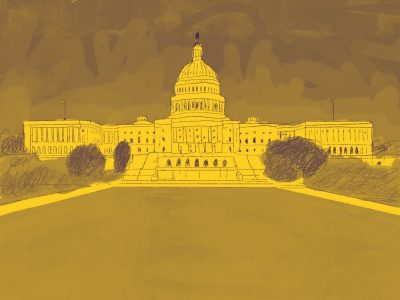Since President Joe Biden was inaugurated Jan. 20, he has enacted executive orders that address the COVID-19 pandemic, immigration, climate crisis and economy. Most remarkably, Biden and the Democrats in Congress garnered the votes and support to pass the United States’ second COVID-19 relief bill, one that cost a whopping $1.9 trillion.
The pandemic has caused an economic recession — unemployment levels are almost as high as they were during the Great Depression. The lockdowns also permanently closed many businesses, and the government has given more than $2 trillion in stimulus in 2020, forcing the deficit to skyrocket.

Though expensive, the Democrats’ latest stimulus was a legislative maneuver necessary to rebuild the backbone of the struggling U.S. economy.
In fact, some political analysts consider the milestone $1.9 trillion relief bill a significant legislative victory for Biden’s presidency. Why? The now-passed bill’s mammoth price tag comes with a promise to lift millions of struggling Americans out of poverty.
The massive bill was able to pass for two primary reasons.
First, the Biden Administration and congressional Democrats aimed to fulfill the campaign promises that helped elect them: control the virus and deliver fast economic relief to the American people in need.
Secondly, Democrats currently control the Senate, House of Representatives and the White House. The passage of this bill, combined with the Democrats’ partisan control, may predict the political landscape Biden will encounter in the next few months.
Nevertheless, while Biden promised bipartisanship and a united Congress during his campaign, the second stimulus bill did not receive any Republican support in either chamber of Congress. Republicans, in fact, publicly stated they believed the bill was full of partisan liberal policies.
How much has Biden established without any Republican support at all? Already, he has issued many executive orders without any congressional oversight whatsoever. Few Republicans, if any, would likely support any of these orders.
While many, including the editorial board at The New York Times, believe executive actions are “no way to make law,” it is going to be notably tricky for the current administration to assemble any form of Republican support in the current political climate.

How can Biden be a president for all Americans when 74 million citizens heard former President Donald Trump state he knew how severe the virus was, lied to the public about it and still voted for him? Some of these are the same Americans who believed Trump would be re-inaugurated despite losing the presidential election.
This is also the same Republican Party whose highest-ranking member, Senate Minority Leader Mitch McConnell, R-Ky., didn’t vote to convict Trump for inciting the storming of the U.S. Capitol, despite publicly acknowledging it on the Senate floor.
Before Biden can unite the country, he must first rid the Republican Party of the Trumpism that has governed the GOP for the last four years. It’s clear that conservatives have banded around making Trump the star of the show, as evidenced by discussions at the 2021 Conservative Political Action Conference and the alienation of Republican icons who don’t support Trump — such as Sen. Mitt Romney, R-Utah, and former Secretary of State Colin Powell.
Trumpism has also created doubt and misinformation about the legitimacy of face masks in mitigating the transmission of the coronavirus, when a plethora of research proves mask-wearing reduces the spread of the virus. This evidence is supported by significant scientific organizations such as the Centers for Disease Control and Prevention and the World Health Organization.
In many ways, Biden’s critics are right. The president should probably issue fewer executive orders and strive for bipartisan support in passing legislation through Congress.
However, after the 2020 election, a decent amount of Republican lawmakers in both chambers of Congress did not accept Trump’s legitimate defeat or recognize Biden as the president. Most still publicly support Trump after he incited a violent riot in the Capitol.
Bipartisanship is a two-way street. The Republican Party must be willing to work with their Democratic counterparts if they genuinely want a united Congress.
Until the GOP rids themselves of Trumpism, true bipartisanship is unattainable.














“Bipartisanship is a two-way street”
When was the last time Democrats practice Bipartisanship?
Was it during the Trump administration?
Was it during either of the Bush administrations?
Was it during the Reagan administration?
Was it during the Ford or Nixon administration?
Was it during the Eisenhower?
Right now I can’t think of one time when the Democrats practice Bipartisanship with Trump. Can you of any time when they did?
Becker’s argument is too true. While the two-party system has its own issues, the only way both parties would cooperate is through diminishing the influence of Trump